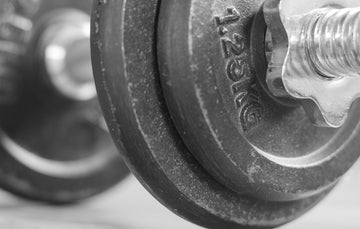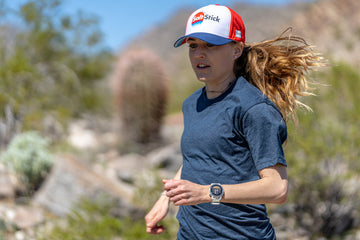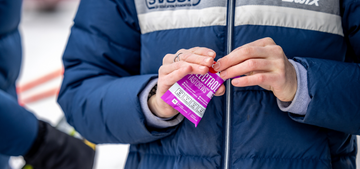
 Are the extreme dehydration techniques practiced by competitive bodybuilders healthy -- or even necessary?
In his memoir I’m Here to Win, two-time Ironman World Champion Chris McCormack includes a section titled “How Bodybuilders Helped Me Win Kona.”
In the section, McCormack describes his battle with cramping, overheating and severely hampered performances at triathlon’s main event on the Big Island. Even though McCormack won the Championship in 2007, he was unable to repeat in both 2008 and 2009. Frustrated with his lack of progress, he turned to sources outside of triathlon for nutrition advice, settling on bodybuilding because “pro bodybuilders become like pharmacists -- experts when it comes to nutrition, muscle size and health.”
Hydration is one of the biggest issues bodybuilders manage when competing. Muscle size is dependent partly on water content, so a hydrated muscle is a big muscle. However, competitors also want to avoid retaining any extra water, which will prevent their skin from appearing “tight” onstage. Too much water and the bodybuilder will look bloated and soft; too little water and the bodybuilder could cramp and struggle to induce a pump in his muscles.
McCormack learns all of this from a chance encounter with a former Mr. France who told him about the difference in hydrating at the muscular-cellular level and hydrating at the blood-plasma level. “What tends to happen
Are the extreme dehydration techniques practiced by competitive bodybuilders healthy -- or even necessary?
In his memoir I’m Here to Win, two-time Ironman World Champion Chris McCormack includes a section titled “How Bodybuilders Helped Me Win Kona.”
In the section, McCormack describes his battle with cramping, overheating and severely hampered performances at triathlon’s main event on the Big Island. Even though McCormack won the Championship in 2007, he was unable to repeat in both 2008 and 2009. Frustrated with his lack of progress, he turned to sources outside of triathlon for nutrition advice, settling on bodybuilding because “pro bodybuilders become like pharmacists -- experts when it comes to nutrition, muscle size and health.”
Hydration is one of the biggest issues bodybuilders manage when competing. Muscle size is dependent partly on water content, so a hydrated muscle is a big muscle. However, competitors also want to avoid retaining any extra water, which will prevent their skin from appearing “tight” onstage. Too much water and the bodybuilder will look bloated and soft; too little water and the bodybuilder could cramp and struggle to induce a pump in his muscles.
McCormack learns all of this from a chance encounter with a former Mr. France who told him about the difference in hydrating at the muscular-cellular level and hydrating at the blood-plasma level. “What tends to happen The traditional approach
Bodybuilding.com provides a timeline for bodybuilders looking to compete as lean as possible, including strategies ranging from sodium loading/deloading to red wine-induced urination. Other resources offer similar tactics for reducing weight prior to competition, but all look fairly similar in that they incorporate extreme steps toward dehydrating the athlete. Some bodybuilders have become so obsessed with removing excess water that they move beyond red wine and saunas to turn to chemical means. An article titled “Diuretics in Bodybuilding: The Good, the Bad, the Tragic” describes the great lengths some athletes will go before a competition. “While athletes appear to be at the highest level of physical fitness and health while on stage, they are actually often on the brink of very serious health issues due to lack of hydration and electrolyte imbalances caused by the lack of bodily fluids,” the article describes. Many of these hydration imbalances are the result of an athlete consuming diuretics, which induce urination. But extreme dehydration can cause equally extreme problems inside the body, and several bodybuilders have either died or been hospitalized due to cardiac arrest or liver failure resulting from electrolyte imbalances. Famous examples include Mohammed Benaziza, who died in 1992 and Albert Beckles, who died but was resuscitated by paramedics in 1988. Physicians found out afterwards that both had taken diuretics before their shows. Death may be the most serious consequence, but other side effects of bodybuilding’s dehydration methods include a drop in blood pressure, thickening of the blood (due to lack of fluids), fainting, renal failure and cramping due to electrolyte imbalances. Endurance sports, of course, have their own share of horror stories relating to dehydration (or more commonly, overhydration resulting in hyponatremia). The takeaway from both sports is the same: Do not play with the body’s need for appropriate levels of water and electrolytes. Athletes in either sport will counter-argue and agree that completing a long-distance triathlon or getting lean enough to compete onstage is not ideal for the body (physically, mentally, hormonally), which is why competitions only happen a few times each year. It is true that some level of physical stress must be accepted in order to achieve world-class results. For instance, extreme low body-fat levels results in dramatically low testosterone levels (International Journal of Sports Physiology and Performance, 2013), which return to normal after a bodybuilding competition ends and competitors return to a healthier body fat percentage. However, when an athlete must be carried offstage because of cramping or ends up hospitalized due to cardiac arrest, something has gone wrong. This has caused some members of the bodybuilding community to question whether the traditional methods of preparation are still appropriate for the sport.Is dehydration worth it?
In Ironman Magazine, columnist Dave Goodin addresses dehydration practices in a 2011 article. His conclusion is that for a drug-free athlete, dehydration is not necessary, and in fact, could achieve a negative outcome: “Dehydration is very unhealthful and because it makes drug-free people look worse instead of better.” Goodin provides two reasons why dehydration has been overhyped in the industry. The first reason is that dehydration practices arose in an era before anabolic steroids were deemed illegal. Before the late 1980s, steroids were common practice among bodybuilders because their use had not been restricted by either federal or state law. A side effect of steroid use is water accumulation outside of muscle cells, and to counteract this, bodybuilders before the 1990s commonly practiced dehydration methods to remove this extra water before a competition. After steroid use was banned within the industry, the practice continued, simply due to momentum. “If you are not taking any bodybuilding drugs, there’s no reason to dehydrate your body for a competition, photo shoot or any other event at which you want to look lean and muscular,” Goodin writes. The second reason is that among fitness circles, the phrase “you’re just holding water” is often used as an excuse for excess body fat. “Water retention is temporary,” Goodin writes. “Unless you have kidney issues, the- Consuming a variety of foods;
- Not neglecting any macronutrient groups;
- Exercising regularly but not excessively; and
- Incorporating rest days into his conditioning regime.
In the end, what is useful?
Compared to the environment twenty years ago, professional triathletes use fewer extreme techniques in training and racing, such as obtaining dangerously-low body fat levels or “getting to the finish line at all costs.” Modern exercise science has confirmed the risks of forcing the body through such high levels of stress. Today’s athletes are willing to take the risk only if success is likely, and while it is not as spectator-friendly, it is much safer. Bodybuilding has also moved in a more natural direction; “natural bodybuilding” has even become a stand-alone competitive category. As the studies above indicate, cutting body fat to low levels can be achieved through diet and exercise. During competition, there is no need for radical dehydration techniques, and athletes can follow normal hydration protocol:- Consuming adequate amounts of all key electrolytes: The body needs sodium for a variety of physiological processes, but also potassium, calcium and magnesium. A majority of U.S adults do not consume the recommended daily amount of magnesium, which is likely why bodybuilders are often advised to take magnesium supplements leading up to competition. Low magnesium levels, in particular, have been correlated with increased cramping, which is a bodybuilder’s enemy onstage.
- Ensuring a proper balance among key electrolytes: Bodybuilders are often told to cut sodium in the days before a competition to avoid water retention. However, as we have discussed many times on our blog, the ratio of electrolytes is more important than the absolute amount consumed. A diet high in potassium obtained from fruits and vegetables will help reduce bloating due to water retention, and extreme reductions of sodium are not necessary.
Tags:








